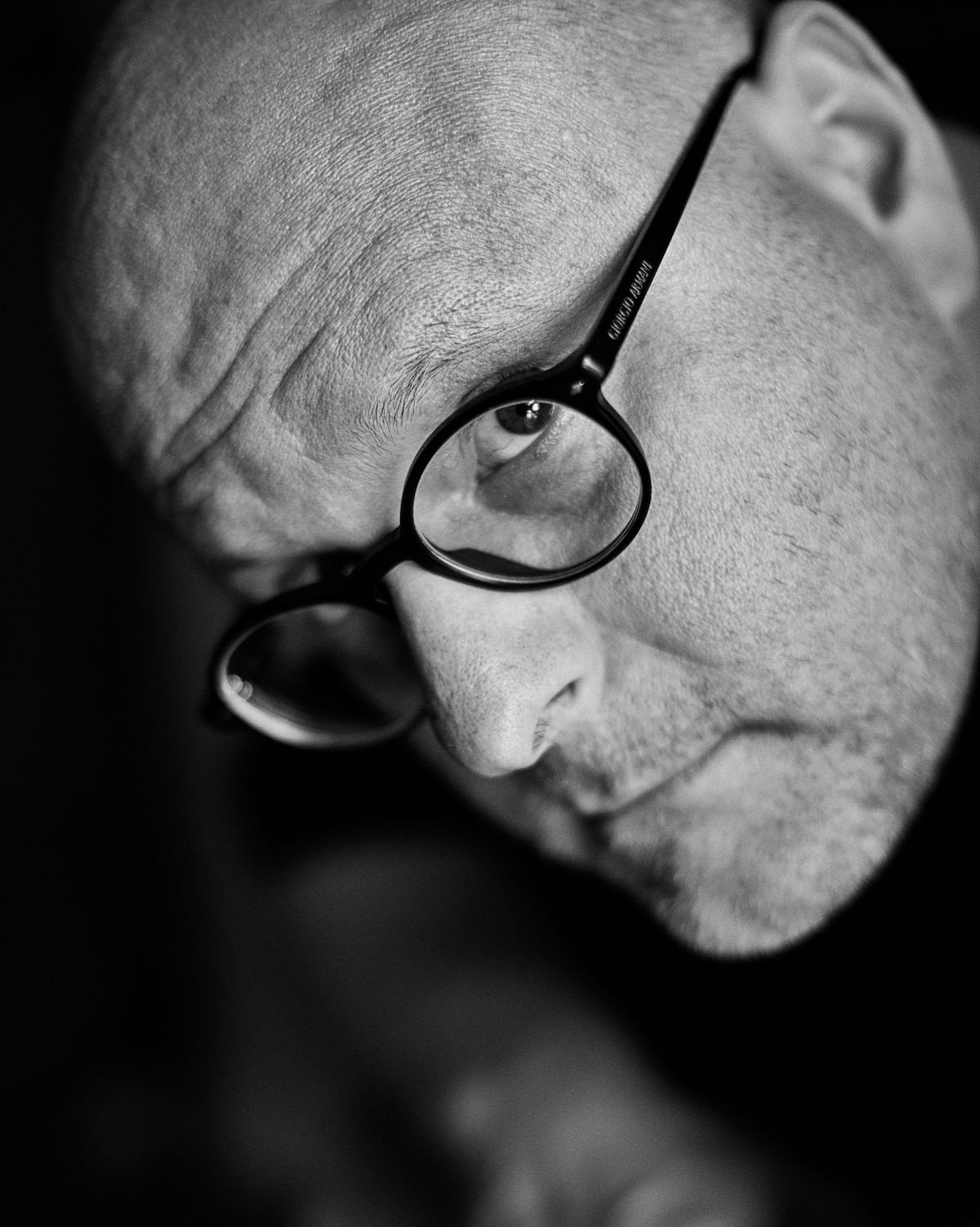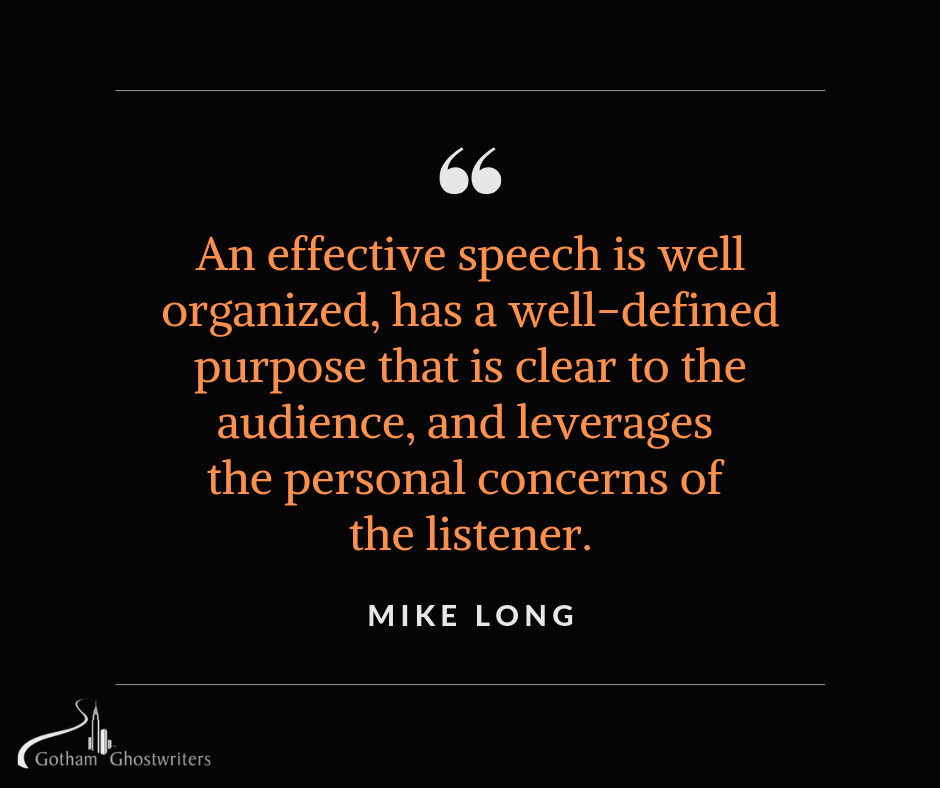
Trained as a physicist, Mike Long is an award-winning author, speechwriter, screenwriter, and playwright. He most recently won the Neil LaBute New Theater Festival for the second year in a row and was a grand-prize finalist in screenwriting at the Slamdance Film Festival. He is co-author of The Molecule of More (as Michael E. Long), a No. 1 New Release in Neuroscience on Amazon. His speechwriting clients include members of Congress, business executives, and presidential candidates. A popular speaker and writing seminar leader, Mr. Long has addressed audiences around the world, including in a keynote at Oxford University. He teaches writing at Georgetown University. Learn more about Mike here.
Tell us about your writing journey. How did you get into your practice and identify your niche? When did you know you could make a career out of it?
I’m a career-switcher. I was a programmer with a physics and math education, but I loved words as much — essays, films, plays, all that. The writers I liked most were former presidential speechwriters who were writing for magazines, so I wrote them letters for advice and they wrote back. Speechwriting seemed the path to that other writing, but I figured out that I love speechwriting as well — and then I discovered that I love speechwriters, too, such unusual people with such wide-ranging interests. (These days I teach them all over the world.) But maybe I was a ringer: My dad was a country preacher, so the sound of a good speech came naturally to me after years in the pews.
What special considerations are required when writing speeches, compared to other writing mediums?
Listening is hard, that’s the key. Readers can re-read, but once a listener is lost, it’s for good. No matter how grave or important your subject is, it’s your job as the speaker, and as the writer, to keep folks engaged. The best way to do this is to entertain them, which is a hard thing for serious people to hear. Doesn’t make it less true, though. Yet entertainment doesn’t have to be juggling and clown cars. Drama is entertainment. Suspense is entertainment. Beautiful language is entertainment. This adds up to one thing: pay desperate attention to the audience’s interest, second to second.
Do you have any quick tips for revising speeches?
Let’s say you’re overweight and the doctor says if you don’t shed some pounds, you’re going to get sick and die. At that, most people nod and drive off to lunch. How much more important could information be? Yet we know the listener’s reaction in almost every case. Quit assuming that the gravity of the situation is enough to inspire action. It’s not.
How do you develop a good “hook” for a memorable and effective speech? What questions do you ask clients to tease out the core message and understand their voice?
An effective speech begins with parting with false beliefs, so begin here: there’s no such thing as voice. You may think there is, but you’re wrong. I once wrote a speech for a cabinet member. His best friend read it and told me that “it sounds just like him,” yet I had never heard the principal give a speech. How did I do it? The secretary’s friend found my text compelling and easy to listen to. What most speechwriters think of as “voice” is a small collection of habits and tics that a writer can sprinkle through a talk in a few casual minutes. The foundation is what makes a speech work, not some “voice” acting as the ghost in the machine. An effective speech is well organized, has a well-defined purpose that is clear to the audience, and leverages the personal concerns of the listener.

What’s something you wish all clients knew before working with a speechwriter?
If there’s something I want them to know, I tell them. In general, I tell them up front that they can participate as much or as little as they like. The goal is for them to be comfortable because this affects confidence, which undergirds performance, and that’s what matters in the end.
What does your writing routine look like? How often do you take on new projects, and how do you stay productive and overcome blocks?
I write in short bursts and mix it up with my million hobbies: music, magic tricks, backgammon, learning French, plus my other writing for stage and screen — and Facebook! It’s my public diary. I am the most fortunate individual you will ever meet. I mean that. Nobody’s gonna wander in offering to make things interesting. That’s my job.
What strategies do you focus on when promoting yourself and your work?
The best strategy is to ask for what you want. By directly approaching the famous and powerful — or at least approaching people who can get me what I want — I hear “yes” more often than you’d think. Don’t be intimidated. I learned that from my mom, who never let pride get in the way of reaching for a goal a little more directly than others might.
If you could go back and change anything about your career, is there anything you would choose to do differently?
I wish I had formally studied philosophy and the humanities, and done so under some older person who had spent a lifetime marinating in them. I have come to these studies later in life and not only do they enhance my work, they make me happy. I wish I had always had this benefit.
What’s your best piece of advice for someone looking to be a full-time speechwriter (or a writer in general)?
Be sure it’s writing you crave, and not just the ego-stroke of having written. If you don’t take deep satisfaction from your own thought life, then, as they say on Arrested Development, you’ve made a terrible mistake.
What are you working on next?
I’m working on a screenplay and a couple short stageplays. Plus I have some exciting opportunities in the hopper that might, if I may be dramatic, change everything. Of course that’s always the story when you write entertainment. Then again, these things could lead to nothing, which is also fine. My job is to enjoy the ride.
Need a quality speechwriter? Tell us about your project below, and we’ll work to match you with a writer like Mike who can help you bring your vision to life.
